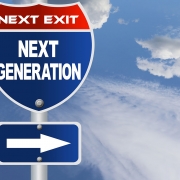Quiet Quitting: New Name for an Old Problem?
Let’s consider that most troublesome of conditions that’s much in the press – quiet quitting. Is that a thing? Really? Or actually, are we just talking about people doing the bare minimum, just trying to hang on and draw their pay cheque and keep their noses down? Well, isn’t that what a lot of people have been doing for decades, if not centuries? I wonder if we just put a new label on a condition that we have been too easily ignoring for far too long, and that’s the chronic engagement problem. So how do we as leaders better engage our people?
I was particularly looking at the largest demographic (over 65%) in the workforce in my own research, and that’s Generation Y or Millennials, and what might keep them engaged at work and actually allow them to give more discretionary effort than they ever have before, and I found that engagement has to do with mainly three things.
One is giving them development opportunities and naming those development opportunities explicitly. In other words, if we give people projects, do we actually tell them that this is a development opportunity for these reasons? When they are shadowing, or attending international secondments or placements, are we explicit about how and why those are development opportunities? Do we give our people mentoring? Most of the things I’ve mentioned are free or inexpensive.
The second thing that we need to think about is culture. What is it like to work around here? What’s the experience? The two questions that Gen Y told me they wish they could ask or would have been asked in a recruitment interview are: Can I meet the team I would be working with, and can you show me where my desk will be? In other words, what they are interested in is: What are the behaviours I observe from the people around me? What they are interested in, therefore, is culture.
Third is work-life balance. Now, this doesn’t mean necessarily working fewer hours, so when we say people are quiet quitting, what they’re telling us is that they’re working the bare minimum of hours, but there might be something behind that, which is that they may truly want flexibility in terms of where they work, and if they have that flexibility then they might actually give us more of their time in terms of doing the work required. I am not suggesting that we kill people and work them to death, but if we think that people are giving us the bare minimum, how do we create the conditions of that work, so that they’re more willing to do what is required to the extent that is healthy and well? That is a two-way conversation of course between employer and employee. But work-life balance is a tricky question because we always have to ask ourselves whether we are dealing with hours worked or with flexibility in terms of where and how the work happens.
For more of my media and speaking, please visit www.adamkingl.com










